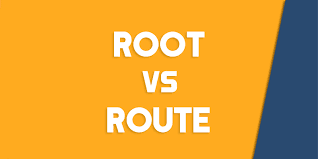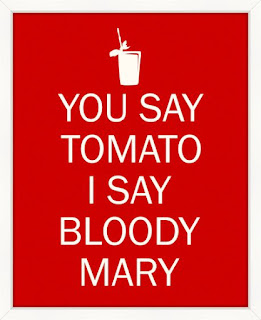I love language and all its oddities, and one of its quirkiest quirks has always fascinated me. (It has also probably frustrated anyone trying to learn English as a second language.)
I'm referring to words with more than one acceptable pronunciation. I can't think of a huge number of those, but here are some, off the top of my head.
NOTE 1: I'm not talking here about words that are pronounced differently when they do double duty as nouns or verbs, like tear, object, wound, dove, desert, lead, etc.
NOTE 2: Not that it matters, but my personal preference for each of these is the first pronunciation listed.
either -- ee-ther vs. eye-ther
neither -- nee-ther vs. nigh-ther
data -- dayta vs. datta (both of them work, but I still think datta sounds hilarious)
envelope -- inn-velope vs. onn-velope
caramel -- care-amel vs. cahr-amel (rhymes with car)
aunt -- aint (rhymes with faint) vs ahhnt (rhymes with font)
horror/horrified -- hah-rer/hah-rified vs. hore-er/hore-ified
vase -- vaise vs. vahz
pajamas -- pah-JOMas vs. pah-jAMmas
length/strength -- linkth/strinkth vs. lenth/strenth (I'm not sure why that 'g' is sometimes dropped)
schedule -- sked-jull vs. shed-jull
leisure -- lee-zure vs. leh-zure
tournament -- turnament vs. toornament
apricot -- ay-pricott vs. app-rickott
foyer -- foy-er vs. foy-yay (always raise your nose and your eyebrows if you say foy-yay)
mentor -- menter vs. men-tore (I like both of these--I go back and forth)
route -- rowt vs. root
root -- root (rhymes with food) vs. rut (rhymes with foot)
adult -- ah-DULT vs. ADD-dult
often -- awf-tunn vs. ahh-fun
coupon -- coo-ponn vs. coopun
roof -- roof (rhymes with proof) vs. ruff (rhymes with tough)
celtic -- selltick vs. kelltick
candidate -- canndah-ditt vs. canndah-date
advertisement -- ad-ver-TIZE-ment vs. ad-VER-tiz-ment
crayon -- cray-un vs. cray-yonn
syrup -- surr-up vs. seer-up
Sunday -- Sundy vs. Sun-day
Caribbean -- Cah-RIB-ee-un vs. Care-ah-BEE-un
Missouri -- Mizzoorah vs. Mizzoo-ree
Nevada/Colorado -- Ne-vodda/Colla-rodda vs. Ne-vadda/Collo-raddo
Oregon -- ahra-gun (sounds like bargain) vs. ore-a-gun (sounds like organ)
Florida -- Flah-ra-da (sounds like far) vs. Flore-a-da (sounds like floor)
Some pronunciations, obviously, are usually regional--that list follows--and I confess I will continue to use the first pronunciation listed on these, whether it's right or not. Examples:
dog/frog/coffee/dawn/lawn -- dawg/frawg/cawfee/dawn/lawn vs. dahg/frahg/cahfee/donn/lonn
class/glass/pass/ass -- uses a "mash" sound vs. a "mass" sound
pecan -- pah-CONN vs. PEE-cann
praline -- praw-leen vs. pray-leen
handkerchief -- haink-erchiff vs. hann-kerchiff
oil/boil/coil/soil -- uses an "aw-ull" sound (two syllables) vs. an "aw-ee-ul" sound (three syllables)
school/cool/pool/fool/rule -- ool (one syllable) vs. oo-wull (two syllables)
can't -- caint (rhymes with paint) vs. cant (rhymes with pant)
On the subject of regional words: I've heard people say rurn for ruin, arn for iron, herrikin for hurricane, crick for creek, pitcher for picture, etc., etc., but I doubt many folks would consider them acceptable pronunciations. And I won't even get started on the stupid ways a lot of people--including newscasters--pronounce New Orleans. By the way, if you haven't read it, check out my fellow SleuthSayer Jim Winter's column here yesterday, on regionalisms.
Here's a bit of trivia. Aluminum (al-LOO-min-um) is not only pronounced (al-loo-MIN-ee-um) in England, it's spelled aluminium. So the same chemical element is both spelled and pronounced differently in America and in England.
One more thing: Two other "optional" pronunciations are ta-mayto vs. ta-motto and pa-tayto vs. pa-totto--but I didn't list them because I've never in my life actually heard anyone sober say ta-motto or pa-totto. Maybe that's just me.
How about you? What words have you heard that can be pronounced two or more different ways, and all the pronunciations are considered acceptable? What are your personal preferences, with those? Also, have I listed any words that you feel should have only one acceptable pronunciation?
Or are you hah-rified by all this dayta? I think I am.
See you in two weeks.



John, like you I’ve always been fascinated by differences in pronunciations. Question: is your parent’s sibling an insect, i, e, your aunt (ahnt, as we from the Boston area say), or your ant?
ReplyDeleteEdward Lodi
Edward, she's either my ant or my ain't, but not my ont. Is there any sense to all this?
ReplyDeleteJohn, thanks for not being a wise guy. I realized, too late, that I didn’t specify female. You might have said, no, I call him my uncle.
ReplyDeleteEdward Lodi
Ha! Edward, I make too big mistakes of my own--I'm not about to go around pointing out the tiny mistakes of others.
DeleteGrin- I'm Canadian, and I say ant for aunt. I've never heard anyone say ahnt up here, even though some people think we do. My father (a WW11 vet) told me that if you are German, you pronounce the last letter of two vowels together (neither would be nyther unstead of neether). So of course, being British (and the other side), he was determined to pronounce these words neether/eether. fun column!
ReplyDeleteI've never heard that rule, Melodie--I learn something from you just about every week! And yes, I suspect ants outnumber ahnts by a good percentage--at least in my experience.
DeleteCrayon has four different pronunciations according to these maps: https://www.businessinsider.com/american-english-dialects-maps-2018-1
ReplyDeleteInteresting, Noreen! Thanks so much.
DeleteFun stuff. Sorry, though, but I'm a Ne-vadda guy.
ReplyDeleteHey, you're probably correct, Bob. Somehow it rolls off my tongue as Ne-vodda. My wife says Ne-vadda, and Collo-raddo, too. I bet you say Eldo-raddo instead of Eldo-roddo!
DeleteI see that "aunt" pronounced "ant" (which is how I learned it) has already been covered by others, but there's another variation in my vocabulary: "Coupon" pronounced "que-pon." And, in a similar vein, I was well into adulthood before I realized other people pronounce "don" and "dawn" differently. To me, they've always sounded, and been pronounced, the same.
ReplyDeleteMichael, I think Texans (especially if you inch over toward East Texas) and Mississippians pronounce a good many words the same. And you're right, lots of folks in my part of the South say que-pon. My stressing of the "aw" in dawn probably comes from my being way more rural than urban. I've said this before, but if you want to hear someone talk the way EVERYone talked around me when I was growing up, listen to Billy Bob Thornton, or maybe the late actor/politician Fred Thompson. Their voices bring back a lot of good memories, for me.
DeleteHi John, Lovely article. What's this about New Orleans?
ReplyDeleteHey Mary Jo--thanks. As for NOLA, I've always said new-OR-luns, or maybe new-WOLLuns. I've heard others call it new-or-LEENS, new-OR-lee-uns, and everything in between. My old friend O'Neil De Noux seems to agree with me, though, and he oughta know!
DeleteDialects are fascinating. In my part of the East Coast, we say en-vel-ope, pa-JAH-mas, PEE-can. We also pronounce the g in length/strength. My father used to say rut for route. As for Celtic, sell-tic is for the basketball team, and Celtic/Kell-tic is for the Irish people/culture. We tend to remove the nasalization of vowels here, which does alter the pronunciation. Fun post. I love hearing/seeing how other people speak.
ReplyDeleteDialects ARE fascinating, aren't they. Thanks for the clarification on Celtic--I too have heard that explanation, and I know it's true. But I still usually forget and say sell-tic in all cases. I think it's also interesting that almost everyone I know, regardless of whether they say pajommas or pajammas, usually call the shortened form jammies (rhymes with jam) rather than jommies.
DeleteI spent 6 years in the South and was fascinated by homemade signs and the headlines in local small town newspapers. Often a word slipped in, spelled as it was locally pronounced. My favorite was a sign advertising “Bold Peanuts.” I’d probably driven another five miles before I realized these weren’t aggressive nuts, they were ‘boiled.’
ReplyDeleteHa! I love that, though I'd never heard it before. I suspect you just saw a misspelled sign--and God knows there are plenty of those. As for the word "boiled," I'd be willing to bet that the painter of the sign, regardless of his spelling skills, would've pronounced his peanuts "baw-ulled" (two syllables) instead of "bo-ee-ulled" (three syllables). Crazy stuff.
DeleteMore fun with English: for those of you not familiar with it, look up the great vowel shift.
ReplyDeleteEnglish vowels were pronounced like those in continental languages (e.g. French, Italian, Spanish) until they suddenly weren't.
https://en.wikipedia.org/wiki/Great_Vowel_Shift
Whoa. That IS interesting. Thanks so much for this link!
Delete